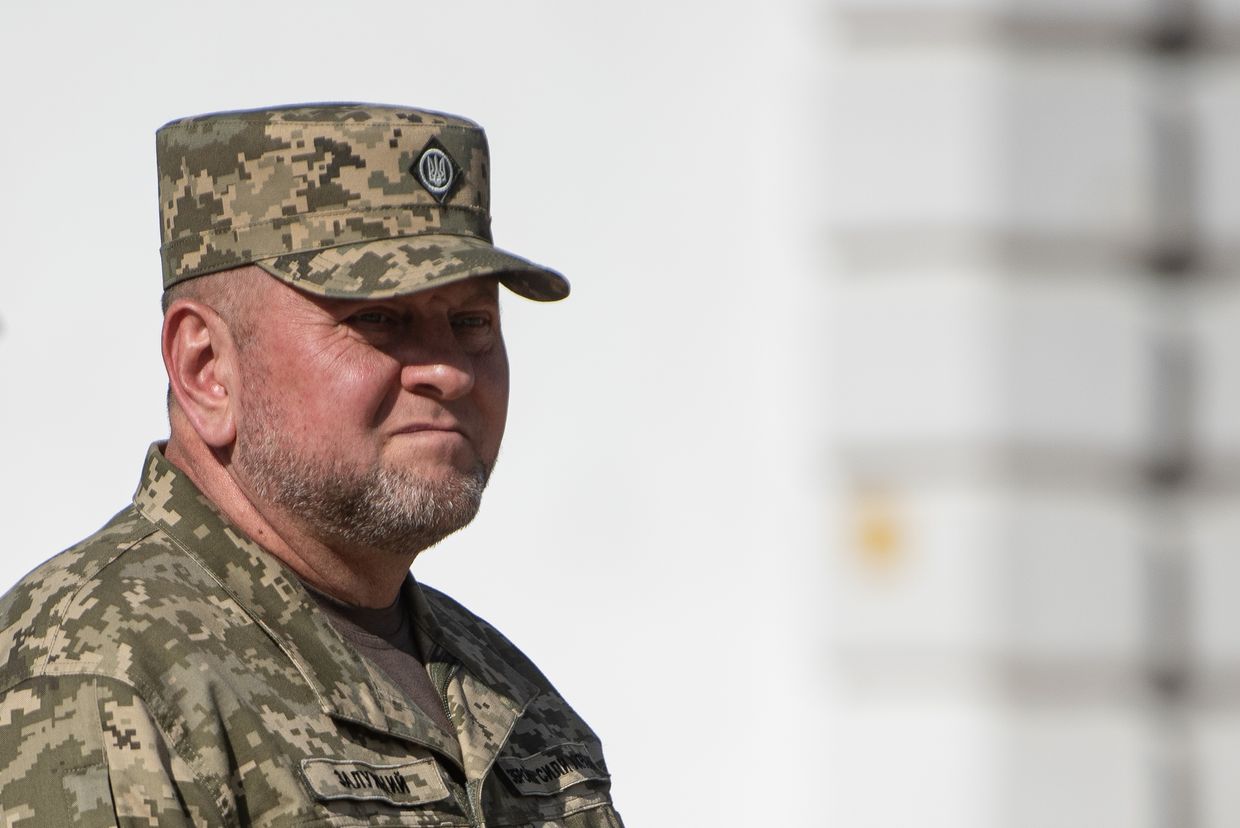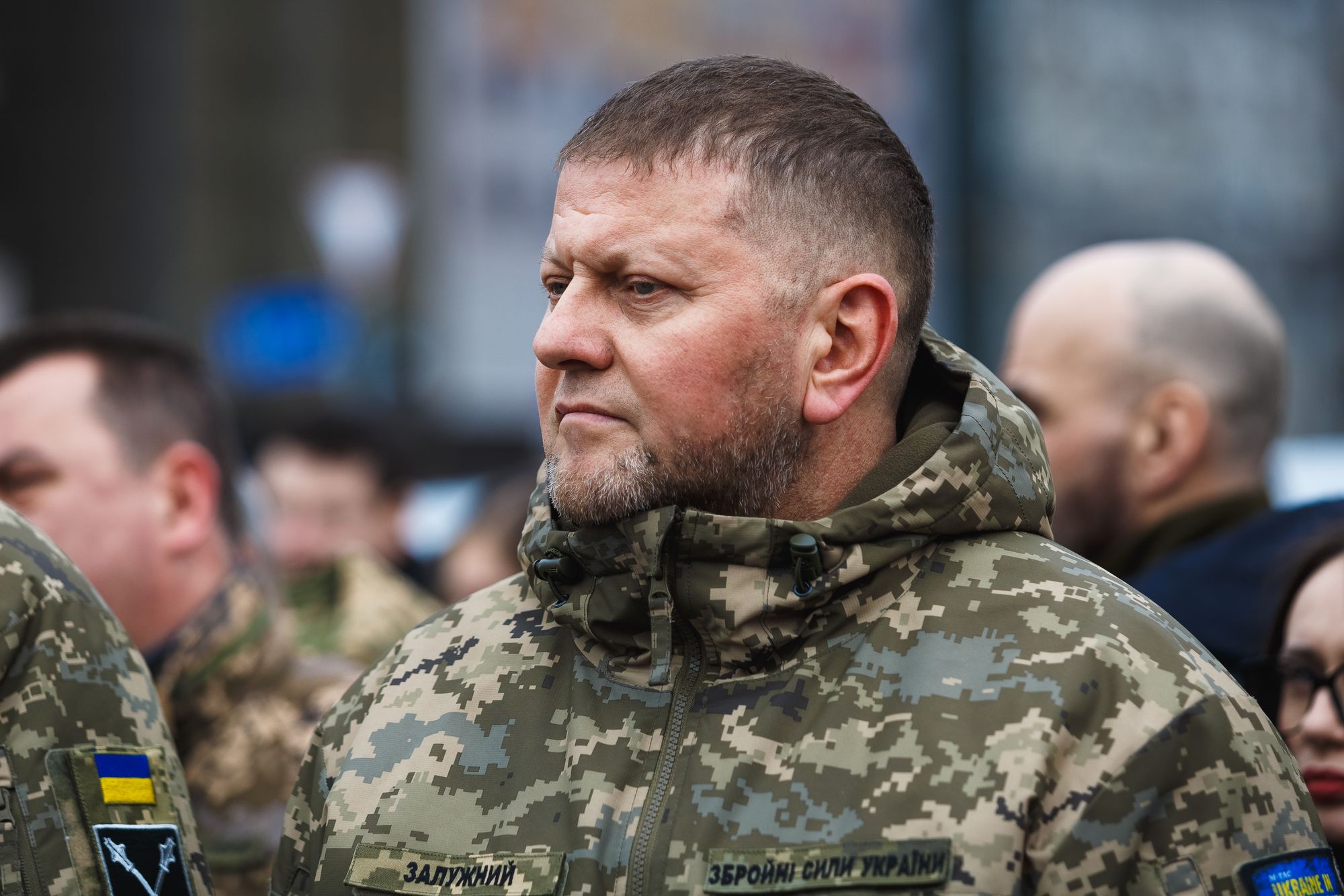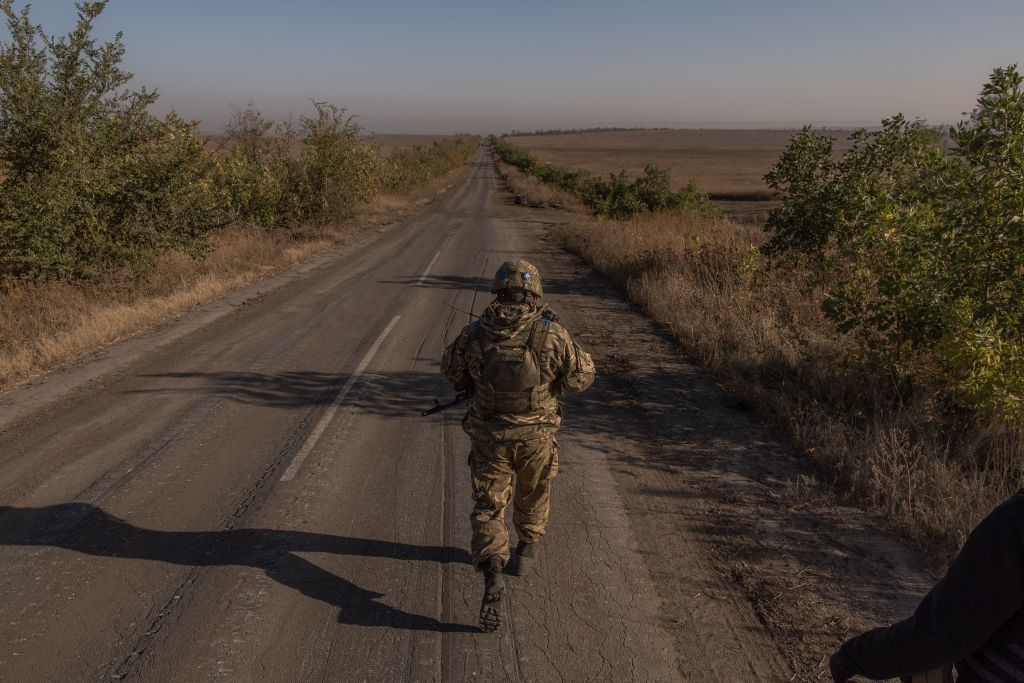Zelensky's administration official criticizes Commander-in-Chief Zaluzhnyi's comments in press

The Ukrainian Presidential Office's deputy head Ihor Zhovkva criticized Commander-in-Chief Valerii Zaluzhnyi's recent comments in the press, alleging that he went too far disclosing battlefield information to the public.
The Economist magazine published an interview with Zaluzhnyi and an op-ed by the general on Nov. 1. They offered a sobering view on the state of the war, including by referring to the current situation as a "stalemate."
The comment contrasted the outlook usually offered by Zelensky and his administration in public comments. Just days before Zaluzhnyi's comments, Zelensky was quoted as saying "Nobody believes in Ukraine's victory like I do," in a cover piece for Time magazine.
On Nov. 3, the presidential office broke silence on Zaluzhny's story.
When asked to comment on it live on air on national television, deputy head of Zelensky's administration Zhovkva said that the military should refrain from making the situation on the battlefield public.
"Because then we make the aggressor's job easier. I am sure that everything has been very carefully read (in Russia), noted, and conclusions have been drawn," Zhovkva said on national television on Nov. 4.
"If we can somehow succeed in this way… maybe this is some smart strategy. But for me, it's very strange."
Zhovkva claimed that following Zaluzhnyi's comments in the Economist he received a "panicked" phone call from a head of an ally country's administration asking if Ukrainian forces were indeed "at a dead end." Zaluzhnyi's comments, however, never referred to the situation as a "dead end."
In his op-ed, Zaluzhnyi warned that the Russian-Ukrainian war was moving to a "positional" stage. This new stage is characterized by "static and attritional fighting" that will allow Russia to restore its military power.
President Volodymyr Zelensky was asked to comment on the article during a joint briefing with European Commission President Ursula von der Leyen in Kyiv on Nov. 4.
"We have difficulties and different opinions, but we have no right to give up. Because what is the alternative? If we give away a third of our country, nothing will end. We know what a frozen conflict is," Zelensky said, denying that Ukraine was at a "stalemate" in defending itself against Russia.
"We need to work more with partners on the supply of air defense, to gain superiority in the sky and enable the Armed Forces to conduct offensive operations. This is what we need to think about. Not about where we will be tomorrow, but about where we are now."
In the opinion piece, Zaluzhnyi described what support Ukraine needs from the West to escape from the "trap" of prolonged war, which includes helping the Ukrainian military to acquire greater air power, improve its ability to conduct electronic warfare from drones, and defeat enemy artillery.
Two other priorities for Ukraine, according to Zaluzhnyi, are bolstering mine-breaching technology and building up reserves in the military.
Zaluzhnyi's article sparked active discussions in the U.S. Congress, with Republicans arguing that remarks by Ukraine's chief commander are a reason to reconsider U.S. aid to Kyiv, Politico reported on Nov. 2.
Meanwhile, the White House said that Zaluzhnyi's piece underscored the importance of Washington's continued support for Ukraine.
"I can't stand here today and tell you that it's going to lead to this particular weapons system or this new capability," U.S. National Security Council spokesperson John Kirby said in a briefing on Nov. 2.
"We are evolving and have evolved what we've provided Ukraine as the war itself has evolved, and I suspect that that process will continue."
















